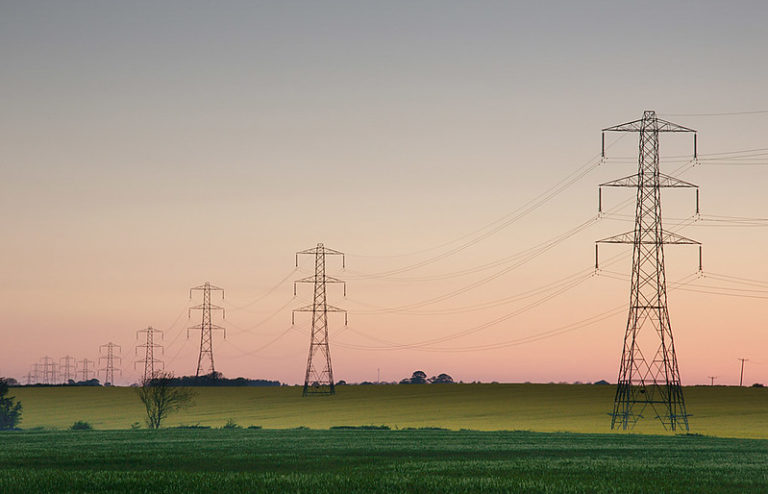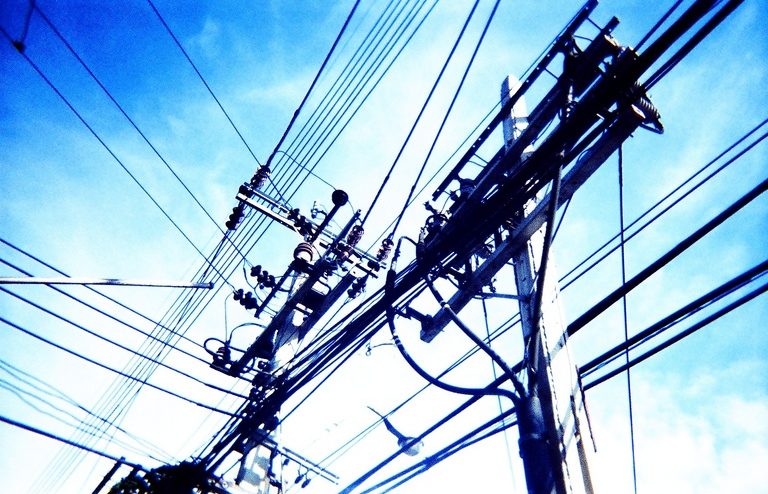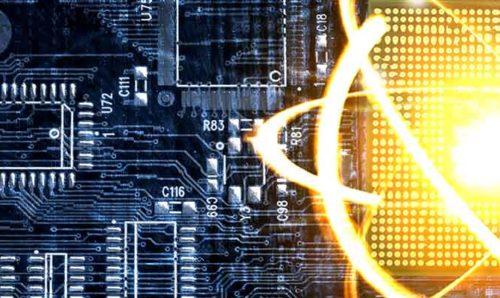Guest post: How organisational resilience helps in dealing with COVID-19 and large-scale crises
Departments 28th April 2020
This week we have a guest post by Matthias Noebels, Dr Mathaios Panteli and Dr Vidyadhar Peesapati of the Department of Electrical and Electronic Engineering. They discuss the resilience of our electricity network during periods of crisis – and how the lights are being kept on during the COVID-19 pandemic.
The outbreak of COVID-19 has disrupted the everyday functioning of societies around the world, and imposed unprecedented challenges on critical infrastructures such as electricity networks.
Network operators, regulators and authorities in the UK and worldwide are addressing the ongoing crisis with emergency measures. For instance, National Grid, the UK’s transmission system operator, has activated its pandemic planning, and Ofgem, the electricity and gas regulator, has published guidance providing regulatory flexibility to both energy supply and network companies. These actions support not only the National Health Service in carrying out its services, but also keep alive communications, water supply and all the other critical infrastructures that rely on electricity and are vital during this difficult period.
Nevertheless, pandemics pose a significant risk of impact on operations and shortage of staff, as evidenced by the latest announcement of UK Power Networks, (operator of the distribution network in South East and East England, including London), which warned its customers to keep a “torch handy“ as well as “hat, gloves and blanket“ amid fears of power outages.
Weighing the risks

So why does a virus like COVID-19 pose such a risk to electricity networks and critical infrastructures in general? Complexities in organisational decision-making and human recourses make it difficult for network operators to react in a timely fashion to everyday events. For instance, staff shortages and prioritisation of tasks during such emergencies may delay both unexpected and scheduled repair and maintenance of assets, such as cables or transformers.
In addition, COVID-19 has affected how we use and consume electricity. Measures such as working from home and the complete or partial shutdown of large parts of the economy have a big impact on electricity networks – although the magnitude of these impacts is not clear, as the potential duration and scale of this outbreak is still unknown. National Grid has reported a surge in household demand of up to 30%, while the overall national electricity demand is forecast to drop by 20%. A report on the impact of COVID-19 on customers and society published by Eurelectric has also shown a decrease of electricity prices to around 20 €/MWh in most EU countries.
The good news is that network operators have not been struck unprepared. While the situation is unprecedented, pandemic contingency plans existed and have now been updated and activated.
In National Grid’s main control facility in Wokingham, shift groups work in two different control rooms without physical interaction. Even essential cleaning staff are not allowed to rotate between the two control rooms in order to minimise the risk of contamination.
Distribution network operators, such as UK Power Networks, have met with the government and Ofgem from an early stage to discuss their contingency planning, postpone nonessential maintenance works, and hire or retrain additional staff. National Grid is also highlighting the benefits of renewable energies, such as wind farms, that can be switched off at short notice – something that can’t be done with large and inflexible nuclear power plants, for example. It is also looking to the benefits of big hydro pumped storage plants that can act as “virtual batteries” to support the electricity system and rapidly react to sudden changes in electricity demand.
Our European neighbours, to whom we are connected via submarine cables, have reacted to the situation with similar measures. Working from home is often implemented for non-essential staff and face-to-face meetings are avoided where possible. In some control centres, health checks are carried out, although not all staff in every country are automatically entitled to Coronavirus testing. On-site accommodation is available at some sites so staff can completely isolate if the situation worsens.
Organisational resilience

Dealing with rare but extreme situations, recovering from disruptions and applying this learning to future planning is generally understood as power grid resilience. Besides infrastructure resilience, which includes the physical robustness to external shocks, and operational resilience, which refers to the rapid and flexible restoration of customers affected by power outages, organisational resilience has also been vital during this large-scale crisis, as evidenced by the reaction of electricity network operators worldwide.
Organisational resilience ensures that network operators have strategies and mechanisms in place to guarantee business continuity (including having key staff available, protected and looked after at all times) to ride through the crisis and carry out the essential services we all rely on. It is therefore promising indeed to see how National Grid and other network operators worldwide are reacting to this crisis, showing longer-term adaptive planning and proactive – rather than reactive – thinking, achieving so-far an effective trade-off between infrastructure, operational and organisational resilience.
The UK’s electricity infrastructure is extremely reliable. Decision- and regulatory-making bodies, the power system industry and academic researchers have been and are still working hard towards keeping the country’s lights on, and being prepared in an ever-changing situation. However, we must also not forget the societal impacts of this crisis – for example, that sudden unemployment can lead to a struggle to pay electricity bills, or how working from home could have an impact on daily electricity usage and impact household costs (there are already some measures from the government to support vulnerable people through COVID-19).
We should therefore think beyond ensuring the continuous and resilient functioning of critical infrastructures, towards safeguarding social and community resilience.
By Matthias Noebels, Dr Mathaios Panteli and Dr Vidyadhar Peesapati



Find out more about Dr Panteli’s work strengthening the Chilean power network, and Dr Peesapati research at The University of Manchester’s High Voltage Lab in our previous posts.
Be sure to subscribe on our homepage to keep up to date with all the latest posts from The Hub.
Images – Sumarie Slabber, Ian Britton, pittaya
coronovirusCOVID-19Electrical and Electronic Engineeringelectrical engineeringhigh voltage labNational GridNational Grid Power Systems Research Centre




